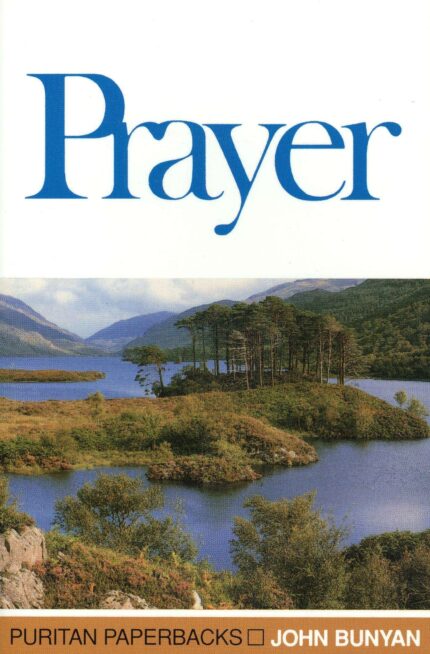Prayer by John Bunyan (1628-1688)

Introduction
Prayer is a powerful and transformative practice that has been a cornerstone of many religions and spiritual traditions for centuries. For Christians, prayer is an essential means of communication with God, a way to express gratitude, seek guidance, and find comfort in times of need. However, despite its importance, many people struggle with prayer, finding it difficult to know how to pray or feeling as though their prayers go unanswered.
This is where John Bunyan’s book summery on prayer comes in. Bunyan, a seventeenth-century Puritan preacher and author of “The Pilgrim’s Progress,” was a firm believer in the power of prayer and wrote extensively on the subject. His book summery offers a practical and insightful guide to prayer, helping readers to understand the nature of prayer, the obstacles that can hinder it, and the benefits of a consistent and sincere prayer practice.
In this article, we will explore the key themes of Bunyan’s book summery and offer practical tips and insights that can help readers to unleash the power of prayer in their own lives.
The Nature of Prayer
At its essence, prayer is a means of communication with God. It is an opportunity to express our thoughts, feelings, and desires to a loving and compassionate creator who desires our well-being. However, as Bunyan points out, prayer is more than just a means of getting what we want from God. It is a means of aligning our will with God’s will, of surrendering our desires to His wisdom and sovereignty.
According to Bunyan, prayer is also a means of deepening our relationship with God. It is a way of getting to know God more intimately, of developing a sense of trust and intimacy with Him. Through prayer, we can experience the joy and peace that comes from being in communion with the divine.
The Obstacles to Prayer
Despite the importance of prayer, many people struggle with it. They may feel as though their prayers go unanswered, or they may struggle to know what to say or how to approach God. According to Bunyan, there are several obstacles that can hinder our prayer practice:
Unbelief
One of the most significant obstacles to effective prayer is unbelief. When we doubt God’s power or willingness to answer our prayers, we limit the effectiveness of our prayers. As Bunyan notes, “If we do not believe that He is able to do what we ask, we do not pray in faith; if we do not believe that He is willing to do it, we do not pray in love.”
Sin
Sin can also hinder our prayers. When we harbor sin in our hearts, we create a barrier between ourselves and God. As Bunyan notes, “Sin is like a cloud that comes between us and the sun; it darkens our minds and weakens our faith.” To overcome this obstacle, we must confess our sins and seek God’s forgiveness.
Distraction
In our fast-paced and busy world, it can be difficult to find the time and focus to pray. Distractions such as social media, television, and work can all hinder our prayer practice. As Bunyan notes, “The devil knows that if he can keep us busy with other things, we will not have time for prayer.” To overcome this obstacle, we must prioritize our prayer practice and make time for it each day Bunyan notes, prayer has the power to transform our lives and the world around us in several ways.
Spiritual Growth
Through prayer, we can deepen our relationship with God and grow in spiritual maturity. As Bunyan notes, “Prayer is a means of grace; it is the channel through which God pours out His blessings upon us.” Through prayer, we can receive wisdom, guidance, and spiritual insight that can help us navigate the challenges of life.
Emotional Healing
Prayer can also be a means of emotional healing. When we bring our fears, anxieties, and sorrows to God in prayer, we can experience a sense of peace and comfort that can help us to overcome the challenges of life. As Bunyan notes, “Prayer is a balm for the wounded heart; it is a soothing ointment that can heal the deepest wounds of the soul.”
Physical Healing
While prayer is not a substitute for medical treatment, many people have experienced physical healing through prayer. As Bunyan notes, “God is able to heal all manner of diseases, and prayer is a means by which He can work His healing power.” When we pray for physical healing, we are acknowledging our dependence on God and trusting in His sovereignty over our bodies.
Answered Prayer
Finally, one of the most significant benefits of prayer is answered prayer. While not every prayer is answered in the way we expect, Bunyan notes that God delights in answering the prayers of His children. As Jesus Himself said, “Ask and it will be given to you; seek and you will find; knock and the door will be opened to you” (Matthew 7:7).
The Means of Grace
Venning then turns his attention to the means of grace, which he defines as the channels through which God imparts His grace to us. He identifies five means of grace:
The Word of God: Venning emphasizes the importance of reading, studying, and meditating on the Bible, which he describes as the “chief means of grace.”
Prayer: Venning encourages Christians to pray regularly and fervently, both individually and corporately.
Sacraments: Venning discusses the two sacraments of the Christian faith, baptism and the Lord’s Supper, and their significance for our spiritual growth.
Fasting: Venning argues that fasting can be a helpful discipline for Christians, as it can help to cultivate self-control and dependence on God.
Fellowship: Venning emphasizes the importance of fellowship with other believers, both for mutual encouragement and accountability.
FAQs
Who is Ralph Venning? Ralph Venning was a Puritan minister and author who lived in the 17th century. He is best known for his book, The Sinfulness of Sin, and his contributions to the Puritan movement in England.
Is Learning in Christ’s School still relevant today? Yes, Learning in Christ’s School is still relevant today. Its timeless principles and practical guidance continue to speak to Christians who seek to grow in their faith and walk with Christ.
Can non-Christians benefit from this book? While Learning in Christ’s School is primarily written for Christians, non-Christians may also benefit from its insights into the nature of the Christian life and the means of spiritual growth.
Conclusion
In conclusion, John Bunyan’s book summery on prayer offers valuable insights and wisdom that can help us to unleash the power of prayer in our lives. Through prayer, we can deepen our relationship with God, overcome obstacles, and experience the transformative power of His love and grace.
If you are struggling with your prayer practice, take heart. Prayer is not a formula or a magic spell, but a means of communication with a loving and compassionate God who desires your well-being. As Bunyan notes, “Prayer is not asking. It is a longing of the soul. It is daily admission of one’s weakness. It is better in prayer to have a heart without words than words without a heart.”
So take the time to pray, to express your heart to God, and to listen for His voice in return. May you experience the joy and peace that comes from being in communion with the divine, and may you discover the power and beauty of prayer in your own life.
Quotes
"Prayer is a means of grace; it is the channel through which God pours out His blessings upon us."
"Prayer is a balm for the wounded heart; it is a soothing ointment that can heal the deepest wounds of the soul."
"God is able to heal all manner of diseases, and prayer is a means by which He can work His healing power."
"Ask and it will be given to you; seek and you will find; knock and the door will be opened to you" (Matthew 7:7).
"Prayer is not asking. It is a longing of the soul. It is daily admission of one's weakness. It is better in prayer to have a heart without words than words without a heart."
Prayer by John Bunyan (1628-1688)
BOOK DESCRIPTION Two works on prayer are brought together in John Bunyan’s Prayer. In Praying in the…



